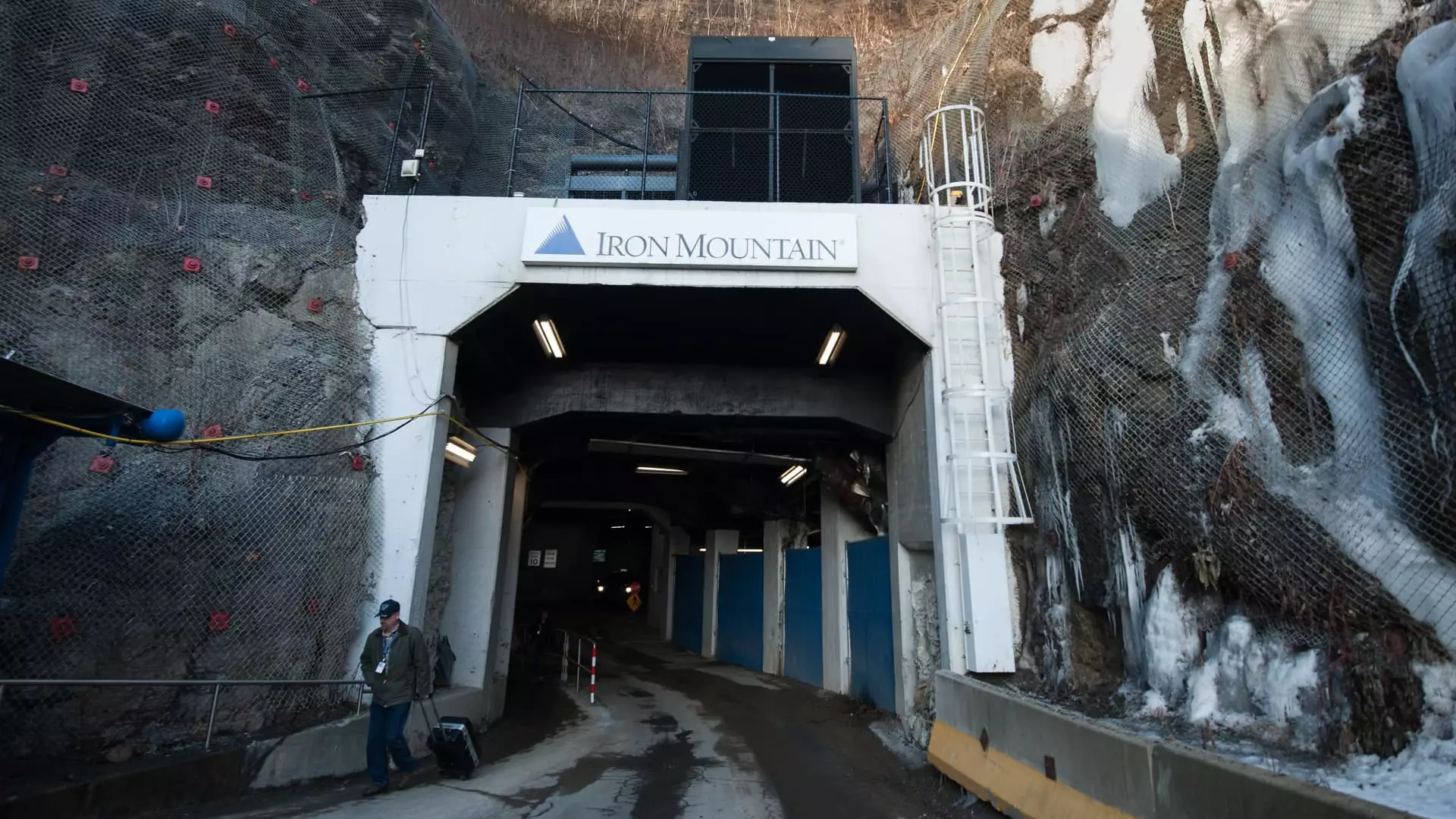The ever-shifting landscape of American politics often intersects with the world of business, especially when noted entrepreneurs like Elon Musk step into the limelight. A recent exchange between Musk and President Donald Trump in the Oval Office serves as a compelling case study, spotlighting the inefficiencies that persist in government operations while offering hints at potential paths for modernization. Musk’s impassioned dialogue about the Department of Government Efficiency (DOGE) and its exploration of outdated government practices raises profound questions about systemic shortcomings and opportunities for innovation.
During the Oval Office discussion—filled with colorfully vivid imagery—Musk bluntly described a limestone mine utilized to archive federal retirement paperwork as “looking like something out of the ‘50s.” This comment not only provides insight into the stark realities of governmental documentation processes but also highlights how antiquated systems can hinder efficiency. Musk drew attention to the fact that the mine’s elevator speed directly impacts the rate at which retirement applications are processed for federal employees, a claim that reflects a frustrating absurdity within the bureaucracy. Such statements spotlight a larger cultural critique of how government functions, where processes may be mired in time-consuming and outdated practices.
This public airing of grievances against slow-moving bureaucracy caught the attention of investors and stakeholders alike, particularly concerning Iron Mountain, the company managing this mine. As stocks plummeted, the question of efficiency in federal contracts became heated, particularly in response to Musk’s comments that hinted at the possibility of cutting existing deals. The evocative imagery Musk conjured up stirred the pot of public discourse, evoking reactions not only regarding his unorthodox approach to addressing inefficiency but also about the future of such government contracts.
Iron Mountain, known primarily for its vault-style storage solutions, faced an unexpected backlash following Musk’s unfiltered critique. However, CEO Bill Meaney seized on this opportunity, positing that a push for efficiency within the federal government presents a robust growth avenue for the company. The irony of the situation lies in how criticism could potentially fuel broader trends of modernization, driving a digital transformation within the federal landscape that aligns with modern technological advances.
In this context, Meaney outlined a financial picture suggesting a shift from traditional document handling to modern digital solutions. Notably, while Iron Mountain earned a meager $10 million from physical document storage, it boasted a staggering $130 million from data center and digitization services. This juxtaposition reinforces the concept that companies willing to adapt to new realities can find success in transforming antiquated systems into modern efficiencies. As agencies struggle under the weight of outdated operations, the conversation reflects an imperative for technological advancements and the urgency to discard antiquated practices.
The stock market’s immediate reaction to Musk’s comments illustrates a significant aspect of business: the volatility brought about by public opinion and reputational perception. Initial sell-offs by investors stressed concerns about Iron Mountain’s reliance on governmental contracts, leading to a sharp decline in stock value. Notably, analysts such as Eric Luebchow from Wells Fargo suggested that this market response was overly pessimistic, given Iron Mountain’s diversified business model, which minimizes its dependency on any single government contract.
This disconnect between media narratives and market realities emphasizes the nuances that companies encounter when grappling with public discourse. While Musk’s statements certainly had immediate negative repercussions for Iron Mountain’s stock, the potential for long-term restructuring narratives—fueled by a drive for efficiency—could pave the way for future gains. Notably, as Meaney pointed out, an increasing focus on streamlining operations is gradually translating into new opportunities for companies willing to innovate alongside government agencies.
Ultimately, this interaction between Musk and Trump provides valuable insight into the dynamic interplay between government functions and private sector innovation. The journey towards greater efficiency in administrative processes could very well yield transformative benefits for businesses that adapt and respond to the increasing demands for modern functionality. As executive leadership shifts its focus to performance-driven results, ambitious tech leaders like Musk may serve as catalysts for reform.
Musk’s abrasive style may generate controversy, but perhaps therein lies its value—challenging the status quo ignites discussions about potential reforms. The future of federal contracting and efficiency may hinge on a new era of accountability and technology-driven solutions. As dialogue shifts from critique to actionable strategies, the intersectionality of business, governance, and technological innovation could redefine the operational landscape, creating opportunities for all stakeholders involved.

